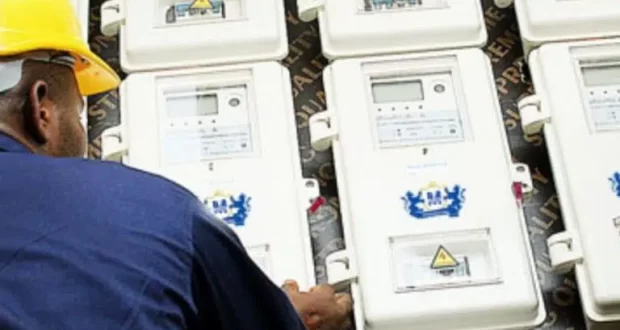……by Victor Egbo…..
Electricity Distribution Companies (DisCos) in Nigeria are headed for a confrontation with regulatory bodies following their insistence that consumers pay for the replacement of functional electricity meters. This development comes despite strong objections from the Federal Competition and Consumer Protection Commission (FCCPC) and the National Electricity Regulatory Commission (NERC), both of which have reiterated that the cost of meter replacements should not fall on consumers.
The DisCos have issued a directive that customers with outdated meters must pay for replacements by Thursday, November 14, 2024, or face disconnection. This deadline is part of the ongoing efforts by the DisCos to phase out older meters, which they argue are defective and result in operational losses. However, both FCCPC and NERC have been vocal in their stance that consumers should not bear the financial burden of replacing meters that are no longer functioning properly.
DisCos’ Position: A Necessary Upgrade
Sources within the DisCos have confirmed that the meters being phased out have become obsolete, and replacing them is essential to ensure accurate readings and efficient service delivery. According to one source in a Lagos-based Disco, the company has already informed its customers that failure to comply with the payment requirement will result in disconnection from the grid.
“They will not be able to recharge their meters, and the service will be cut off,” the source stated. “The deadline is non-negotiable. Any meter older than ten years is being phased out in line with global standards.”
The DisCos’ justification is rooted in the need to phase out faulty meters, which they claim are inefficient and cause substantial losses. These meters, they allege, fail to properly record electricity consumption, leading to financial setbacks for the companies.
The source also pointed to what is known as the Token Identifier (TID) Rollover, a process by which meters are updated to function seamlessly with current systems. Meters older than a decade, they claim, are no longer able to meet the required standards, further exacerbating the losses faced by DisCos.
“There’s a reason why customers are protesting the upgrades—they’ve been enjoying inaccurate billing for years,” the source added. “But once their units are low, the meter doesn’t register consumption properly anymore, causing a loss for us. The sooner we replace these meters, the better it will be for the entire system.”
FCCPC and NERC Respond
The FCCPC has taken a firm stance in defense of consumers, stating that it would not allow companies to charge customers for replacements, emphasizing that consumer rights should not be violated under the guise of necessary upgrades.
“We have received numerous complaints from customers, and we are committed to ensuring that the rights of consumers are protected,” said Tunji Bello, CEO of the FCCPC. “The DisCos cannot force customers to bear the costs of replacing meters that are faulty or outdated.”
Echoing this sentiment, Zubair Babatunde, Head of Consumer Engagement at NERC, reiterated that electricity consumers should not be financially responsible for replacing meters, as it is the DisCos’ duty to ensure that customers have functioning meters.
“Obsolete meters must not only be replaced but must be replaced immediately upon removal,” Babatunde stated. “The consumer should never bear the cost of replacing these meters.”
A Divisive Issue
Despite the regulatory bodies’ strong position, the DisCos maintain that meter replacement is necessary for the long-term health of the electricity grid. The companies have argued that the faulty meters are not only inefficient but also contribute to revenue losses that ultimately affect the quality of service provided to consumers.
In response to customer concerns, one source close to the DisCos noted that more than 30,000 customers in its service area had already applied for meter replacements. While some customers have expressed displeasure at the cost, the source urged them to take advantage of the available meters, which would be refunded gradually through energy tokens.
“There is no time to waste. If customers wait too long, they will face service interruptions,” the source said. “We are working to ensure that no one is left in the dark, and those who comply with the payment will be refunded through their energy token recharge.”
However, consumer rights groups and advocacy organizations have continued to criticize the DisCos for what they perceive as an attempt to shift the financial burden onto consumers. Critics argue that the DisCos have a legal and ethical obligation to replace faulty meters at no cost to the customers, especially given the long history of unreliable service in Nigeria’s electricity sector.
A Tense Stand-Off
As the deadline for meter replacement approaches, tensions continue to rise between the DisCos, FCCPC, and NERC. While the DisCos insist on the necessity of the meter phase-out, consumer protection agencies are holding firm on their stance that customers should not be financially responsible for the change.
The outcome of this standoff could have significant implications for the electricity sector in Nigeria, potentially setting a precedent for how meter replacements and related costs are handled in the future. For now, it remains unclear how this dispute will be resolved, leaving many consumers uncertain about their rights and responsibilities.
As the deadline looms, one thing is certain: the clash between the DisCos and the regulatory authorities is far from over.
 Financial Energy Review
Financial Energy Review





